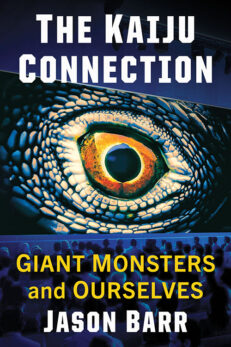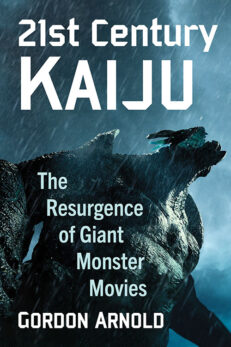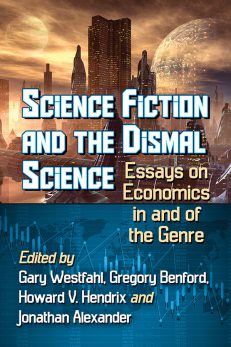Science Fiction and the Dismal Science
Essays on Economics in and of the Genre
$55.00
In stock
About the Book
Despite the growing importance of economics in our lives, literary scholars have long been reluctant to consider economic issues as they examine key texts. This volume seeks to fill one of these conspicuous gaps in the critical literature by focusing on various connections between science fiction and economics, with some attention to related fields such as politics and government. Its seventeen contributors include five award-winning scholars, five science fiction writers, and a widely published economist.
Three topics are covered: what noted science fiction writers like Robert A. Heinlein, Frank Herbert, and Kim Stanley Robinson have had to say about our economic and political future; how the competitive and ever-changing publishing marketplace has affected the growth and development of science fiction from the nineteenth century to today; and how the scholars who examine science fiction have themselves been influenced by the economics of academia. Although the essays focus primarily on American science fiction, the traditions of Russian and Chinese science fiction are also examined. A comprehensive bibliography of works related to science fiction and economics will assist other readers and critics who are interested in this subject.
About the Author(s)
Bibliographic Details
Edited by Gary Westfahl , Gregory Benford, Howard V. Hendrix and Jonathan Alexander
Format: softcover (6 x 9)
Pages: 298
Bibliographic Info: notes, bibliography, index
Copyright Date: 2020
pISBN: 978-1-4766-7738-5
eISBN: 978-1-4766-3756-3
Imprint: McFarland
Table of Contents
Introduction (Gary Westfahl, Gregory Benford, Howard V. Hendrix
and Jonathan Alexander) 1
Part One: The Business in Science Fiction Economics and Science Fiction: An Introduction (Gregory Benford) 11
An Underutilized Resource: Economics in Science Fiction
(Steven Postrel) 18
Complicating the Frankenstein Barrier: Science Fiction Futures
and Social Transformation (Joey Eschrich) 29
Robert A. Heinlein Revisited: A Response to George Slusser’s
Calvinist Interpretation of His Works (Bradford Lyau) 38
The Emperor—and Heretic—of Point of View (David Brin) 51
Counterfeit Worlds: Simulacron-3 on Film and Television (Jonathan Alexander) 58
Millions Seek the Egg: Replicative Technofuturism in Ready Player One and Armada (Howard V. Hendrix) 67
Part Two: The Business of Science Fiction
Science Fiction: The Age of Perspective (Gary K. Wolfe) 81
You Can’t Get There from Here: Unrealistic Expectations
Among the Practitioners of Science Fiction (Charles Platt) 94
Negotiating Fear and Optimism: Surveillance in Early Science Fiction
(Ari Brin) 105
The Pulp Cauldron of the 1960s: Ace Books and Ursula K. Le Guin
(George Slusser) 116
The Homeostatic Culture Machine Revisited, or, the Contemporary Wordmills of Science Fiction (Gary Westfahl) 125
Father of the Strugatskys: The Origins of Russian Science
Fantasy (George Slusser) 137
Looking Backward: Soviet Utopianism and Post-Soviet Dystopias (Stephen W. Potts) 158
Chinese Science Fiction and Its Doubles (Lisa Raphals) 175
Part Three: The Business of Science Fiction Scholarship
The Slusser Test for Generic Identity: Reflections on George Slusser’s “Reflections on Style in Science Fiction” (Alvaro Zinos-Amaro) 201
The Early Life of the Eaton Collection and Dr. George Slusser’s
Invaluable Contributions (Julia D. Ree) 211
The Odd Couple: Blending Disciplines of Science and Humanities Through Teaching (Robert L. Heath) 218
Profiting from Prophecies: Science Fiction Scholars
and Their Textbooks (Gary Westfahl) 229
Bibliography of Primary and Secondary Works Related to Science Fiction and Economics 253
About the Contributors 269
Index 273
Book Reviews & Awards
- “[The essays] are all well-written and generally entertaining even though economics is itself usually considered a pretty dry subject.”—Critical Mass





